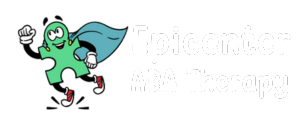Understanding Autism Spectrum Disorder
This blog is for people looking to gain a better understanding of Autism Spectrum Disorder (ASD), including some common early signs and how they might look.
What is Autism?
Autism Spectrum Disorder (ASD) is a developmental condition characterized by challenges in social interaction, communication (both verbal and nonverbal), and repetitive behaviors. Also, autism is a spectrum disorder. This means that the severity and type of symptoms vary widely between individuals. Many children show signs of autism around ages 2-3, but some may develop normally until they suddenly stop gaining new skills or lose previously acquired ones. Although autism is lifelong, many individuals with ASD can lead independent and meaningful lives.
What Does Autism Look Like?
Commonly presenting differently, some children may show mild symptoms, while others exhibit more pronounced behaviors. Over time, symptoms may change or become more noticeable. Here are some common early signs of autism:
- Lack of name response by 12 months
- Not pointing to show interest in objects by 14 months
- Limited or no engagement in “pretend” play by 18 months
- Avoiding eye contact or preferring to be alone
- Becoming upset by small changes in their environment
- Flapping hands, rocking, or spinning
- Unusual reactions to the way things smell, taste, feel, or look
If you’re concerned that your child might have autism, reach out to your primary care physician for guidance.
Social Interaction and Communication Challenges
Children with autism often experience difficulties in social interaction and communication, such as:
- Struggling with back-and-forth conversations
- Sharing limited interests or emotions
- Difficulty understanding social cues (e.g., eye contact, facial expressions)
- Challenges in developing and maintaining relationships
Repetitive Behaviors and Routines
Repeating patterns are another common aspect of autism. This can include:
- Playing with toys in unusual ways (lining them up or flipping them)
- Speaking in unique ways, such as repeating phrases from shows
- Difficulty adapting to changes in routines
- Developing intense, often unusual, interests
If you’re seeking Applied Behavior Analysis (ABA) therapy, contact Epicenter ABA to schedule an intake call and learn how ABA therapy can support your child’s growth.
If you have concerns that your child has autism, contact your primary care physician. If you are looking for Applied Behavior Therapy, complete the Epicenter ABA Therapy intake form.

